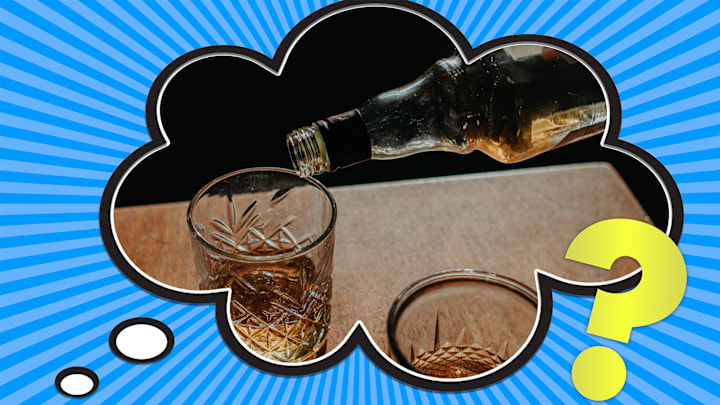The way your behavior can change after a few shots of tequila might make you feel like you’ve been inhabited by the spirit of someone who was clearly the life of the party during their corporeal heyday.
According to VinePair, one theory suggests that we call some liquors spirits because of alcohol’s association with one spirit in particular: the Holy Spirit, which, together with God and Jesus, forms the Holy Trinity in most Christian denominations. This is based primarily on certain places in the Bible where the effects of the Holy Spirit are juxtaposed with alcohol’s effects. In the New Testament, for example, when Jesus’s disciples are “filled with the Holy Spirit” during Pentecost and begin to speak in other languages, some bystanders jokingly write off their strange behavior as a symptom of having drunk too much wine.
A more likely explanation has to do with the etymology of the word alcohol, which is thought to have come from either of two old Arabic words. As Scientific American reports, the first option is al-ghawl, which literally means “spirit” and is even mentioned in the Qur’an as a spirit or demon that imbues wine with its intoxicating effects.
Though that origin story seems logical enough, the second option, al-koh’l, is pretty plausible, too—and more widely accepted. The word al-koh’l described an eyeliner made from stibnite, a black powdery mineral. Since the method of transforming stibnite into makeup was similar to how people distilled liquids, al-koh’l may have gotten co-opted to mean “anything that was distilled.” And spirit—according to this idea—emerged as an alchemist term to represent volatile substances that got separated in the distillation process.
When alcohol showed up in English during the 16th century, it was used to describe a powder before it became the spirit or essence distilled from some other substance, as in “alcohol of wine.” All things considered, it’s not surprising that people eventually just started calling them “spirits.”
Discover More Fascinating Big Questions:
A version of this story ran in 2021; it has been updated for 2024.
